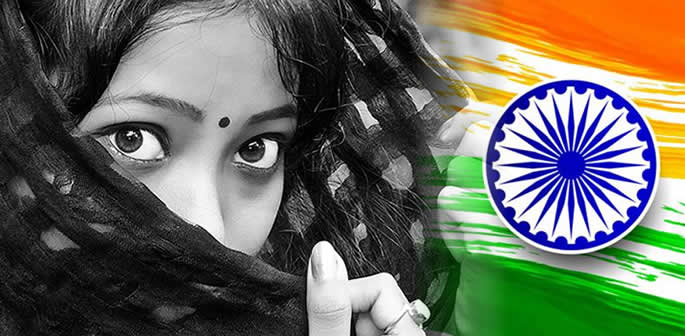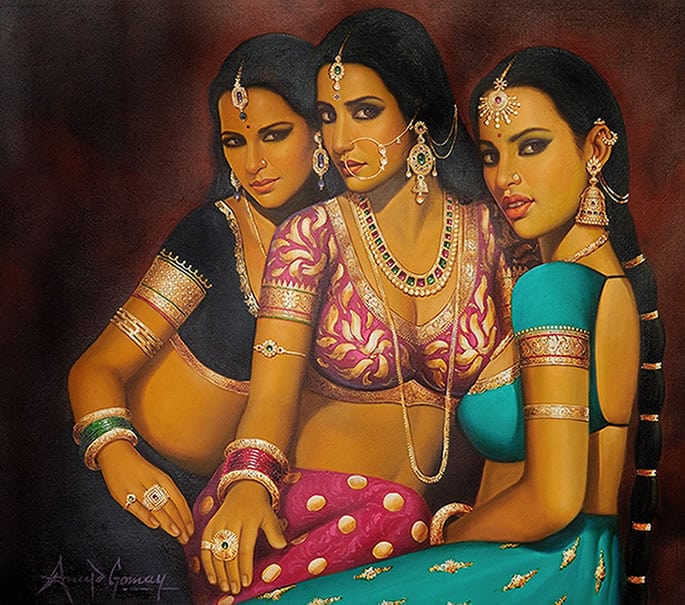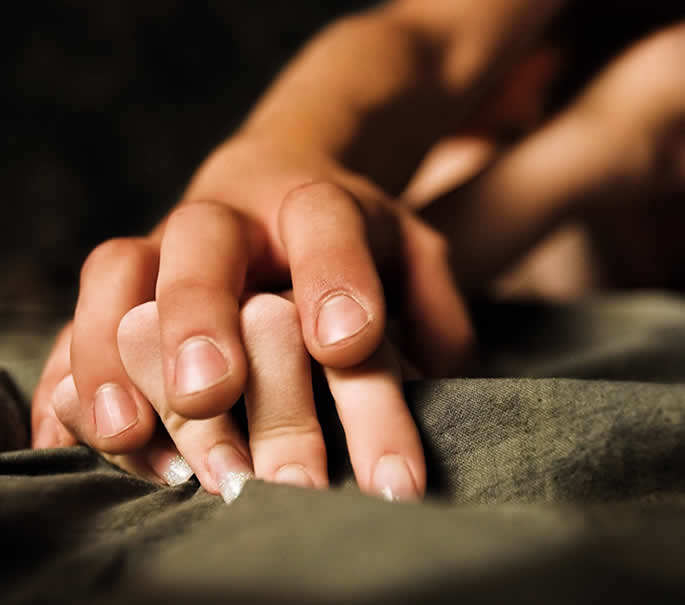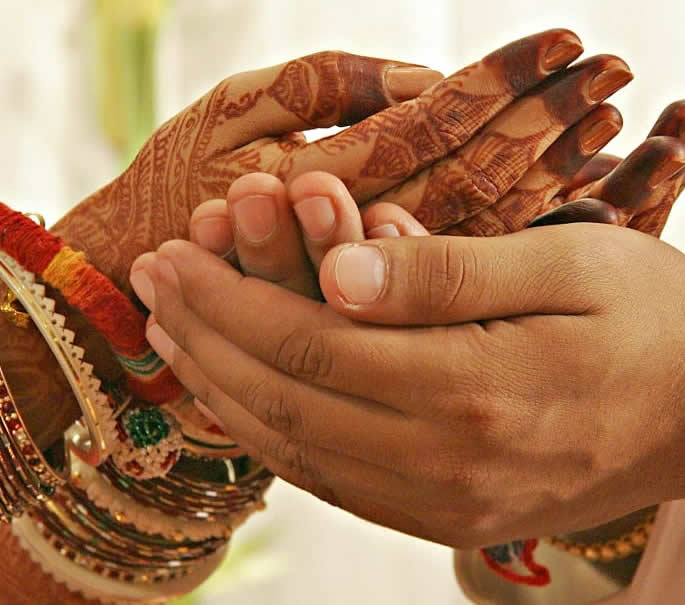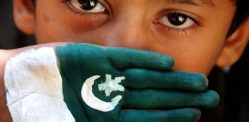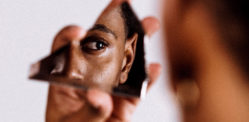India is known for having a deep sense of culture, social taboos and a colourful outlook on life.
However, the social taboo aspect of an evolving country such as India still lacks development.
It is an upcoming metropolitan country which coexists with traditional and agricultural ideologies which have been influenced by a multitude of cultures and beliefs.
These taboos apply to both the men and the women of India.
The main cause of this is the conservative way of thinking which challenges the modern views of the younger generation.
DESIblitz looks at ten social taboos that still exist in India, in the 21st century.
Women and their Bodies
The Indian society has always had misogynistic undertones as many offensive words in India are derogatory towards girls and women.
Most women in India are taught to see their body as a burden that they shouldn’t express in their own unique ways.
For example, Veere Di Wedding was a female-centric film that shows Indian women drinking, smoking and having sex.
Thus, this was frowned upon by many because it conveyed a ‘modern’ way of living.
Similarly, in arts and literature, Indian women are often conveyed as voluptuous beauties with an incredible sex appeal.
In reality, the Indian society raises their women to be discreet in their sexuality and to only show that side of themselves to their husbands.
This means women in India who do celebrate their own bodies and sexuality are considered too unorthodox, essentially becoming a social taboo.
Most women in India are taught to be modest and dress appropriately, especially in rural areas.
Nudity in India is considered to be a huge social crime.
Therefore, ‘caring’ about the way your body may look to others is frowned upon. Things such as plastic surgery, e.g. breast implants, are not celebrated or encouraged.
Women Smoking
Smoking is bad for your health, not character.
However, in India individuals who smoke are considered to have a very questionable character.
India Today recently wrote a report that stated: “casual smoking is on the rise among young working women across metropolitan cities in India.”
It’s also reported that India now has 12.1 million women smokers which statistically is the second largest figure in the world behind the United States.
Some Indian people take a particular distaste towards women who smoke, as it can be viewed as a masculine trait.
This is because reports claim smoking can impact a woman’s fertility, damage her eggs and cause ovulation problems.
This means the stigma towards smoking could be considered more of a gender issue.
One could consider a woman smoking to be viewed as a direct attack on Indian teachings and principles of ‘being a mother first’.
Drinking
Many people in India have an unhealthy relationship with alcohol as they consider it to be one of the most fatal forms of debauchery.
Those against drink, consider alcohol to be a western attribute that contradicts their personal set of beliefs and morals.
Drinking in some states of India is out of control with it impacting the lives of many men and even women.
Life in the cities versus in rural areas is a very different picture when it comes to drinking.
The modern outlook of Indian wine shops, bars and clubs in cities offers alcohol as a means of socialising. Where Indian women as much as men enjoy drinking beer and spirits.
In villages, it is a different scenario, where illegal alcohol is still produced without any kind of regulation.
Commonly referred to as ‘Desi’ it is distilled and made in very rural areas away from the eyes of the law.
A drink which is very potent in alcoholic strength and has been known to claim lives too.
Indian states like Punjab are well known for this kind of alcohol and Punjabi’s who don’t drink are sometimes considered to be a disappointment.
Interestingly, some villages in North India don’t have an age restriction when it comes to consuming alcohol.
Whereas, Kerela has a major excessive drinking problem, with people from the state drinking twice the national average.
Also, states such as; Bihar, Gujarat and Nagaland have banned the consumption of alcohol.
Alcohol was originally banned in Gujarat because the beverage became heavily associated with smuggling and increasing illegal sales.
This taboo has even moulded laws, as Gujarat is the only state in India where the creation and distribution of alcohol could result in the death penalty.
Divorce
Marriage is a holy and sacred ceremony that truly deserves the utmost respect, but sometimes problems can arise and a divorce becomes imperative.
In some Indian households, women are considered to be burdens that need to get married as soon as possible.
Once married, their financial responsibility is passed on to their husband. If divorced, the woman becomes dependent on her parents once again.
This view is unfair on both men and women.
It fundamentally silences women and denies them the opportunity to become financially independent.
For men, the pressure of marriage can be unjust as they are bought up with the notion that they will be the sole caretaker of their wife.
As traditional this view is, Divorce can shun a man in society by making the man feel inadequate about being a husband and caretaker.
Another stigma for Indian women is sex before marriage, so initially, a divorced woman is considered less pure than a woman who has never been married.
According to a study conducted by the BBC, less than one in 1,000 marriages end up in divorce in India.
Roma Mehta wrote in the Economic Weekly journal that “the incompatibility may sometimes be very great indeed; but in spite of it all, the family is maintained.”
Meaning that women in India stay with their husbands, regardless of their personal problems, because of their need for a family structure.
Periods
The Bollywood film Padman (2018) highlighted the menstrual struggle women in small villages face.
The film showed how women in India consider buying sanitary napkins as a waste of money, but will happily spend money on the needs of their family.
Many people in India think pads are dirty and are an embarrassing thing.
According to Indian decorum, the mere mention of periods should not find its way into a refined society.
In the olden days, women were expected to remove themselves from people during the week of their period.
This view did make sense at the time because these women did not have access to sanitary products and sat separately for hygiene reasons.
This stigma still exists today and women are still expected to exclude themselves during their period.
Interestingly, this taboo could soon change because on the 21st of July 2018 India removed their 12% tax on all feminine hygiene products.
This decision will hopefully make sanitary towels cheaper for women.
According to The Hindu, 71% of young girls learn about periods whilst getting their first one, which can only make the experience even more traumatic.
The lack of awareness towards periods and the superstition that menstruation makes you dirty means 60% of young girls miss a week of school every month.
The worst statistic is 80% of women still use home-made pads that are dangerous and can lead to an array of diseases.
A disease caused by a redundant social taboo.
Sex
In India, you cannot talk about sex openly, regardless of the fact that the country has the 2nd highest population in the world.
One could say this makes Indians hypocrites?
In India, the idea of sex is heavily associated with morality and most people still consider it to be a sin to have sex before marriage.
Many Indians today are discovering that the repressive attitude towards sex in India was in fact, circulated during British colonial rule due to their own Victorian attitudes towards sex.
Therefore, in a land where the Kama Sutra was written, during the British rule sex became something which was considered immoral.
So, sex before marriage is still seen as a major taboo in India today despite progression in the cities and metros where young people are dating prior to marriage.
Sex-education is becoming a feature in mainstream education, but many people are still reluctant to talk about sex.
Especially, when the idea of being a virgin in an Indian society is so important.
However, most guys are under peer-pressure to lose their virginity and women are under societal pressure to maintain it.
Despite the fact that pre-marital sex is widely condemned in India, once married, sex becomes a pure and holy union.
A newly married bride and groom will often notice a shift in attitude within society when it comes to sex.
Married or unmarried an Indian society will condemn and frown upon public displays of affection.
This could suggest as to why many Indian people start to believe that sex is wrong from a young age.
Practising safe sex is even seen as a taboo. Advertising campaigns for condoms frequently come under fire for ‘encouraging sex’.
This factor could make people averse to sex and cause problems in marital life.
When an individual gets married they are still programmed to believe that sex is a sin and can often struggle with intimacy.
Interestingly, Men’s Health magazine carried out a study in 2013 and found “Indian men and women have sex less frequently and with fewer partners throughout their lives.”
Most people in India don’t consider the negative impact that their views on sex can have on an upcoming metropolitan society.
LGBT
India has reached the moon and back.
They have one of the biggest film industries in the world, but they also have a law which makes being gay, bisexual or a lesbian a criminal offence.
Despite India’s impressive achievements, when it comes to providing for the LGBT community with the adequate rights and ensuring their safety, they regress.
Some parts of India considers homosexuality to be an unnatural disease that can be cured.
Other parts of Indian society consider homosexuality to be a western myth that doesn’t apply to the East.
Proud member of the LGBTQIA+ community, Sandip Roy spoke to The Telegraph about his experiences with homosexuality.
Roy says: “the hot debates around gay rights revolve around consenting adults and their right to privacy.”
He shares that most gay people in India don’t openly admit it. This is because they will often receive a negative backlash.
But often remain unmarried, the majority of gay people in India won’t actually embark on a heteronormative marriage even if the laws are changed.
Despite this, the arising LGBTQIA+ community in India is trying to pave the way for positive change through marches and social media campaigns, such as #Sec377.
Love Marriages
In India, the most common types of marriages are arranged.
With love marriages increasing throughout time, it is still considered taboo by most Indians.
Most Indian weddings are an opulent declaration of wealth and considered to be India’s biggest celebration.
However, when it comes to marriages, most Indian people have very set ways in which they should take place.
Arranged marriages are still very popular albeit not as traditionally ‘arranged’ as in the past but still with a strong say from parents and family, as to who can marry whom.
Caste is still of significance when it comes to marriage in India.
Marrying a lower caste or out of caste is not readily accepted.
Therefore, marrying for love is considered to be a social taboo and not many marriages survive of this kind unless, in extreme cases, the couple elope and break away from families completely.
Sadly, love stories can often lead to honour killings. According to crime data in India, honour killings have seen a major rise.
Honour killings in India increased by more than 796% between 2014 and 2015.
The main cause of honour killings is marriage. Most people in India will not question child marriages or forced weddings.
However, they may find a way to oppose a genuine love story because it doesn’t correlate with their archaic views.
Feminism
Feminism is a movement for equality for both of the sexes.
The focus of feminism is mainly aimed towards women.
Although, it should be noted that feminism strives to help men overcome the social issues they face within society too.
For example, feminism helps men who are struggling with social expectations and the pressure placed on them as a man.
They also focus on helping men who have been treated unfairly during child custody battles.
Feminists support male rape survivors and domestic abuse victims.
Despite this, Feminism in India is often conveyed as an extreme and negative movement that advocates hate towards men.
Most women in India refuse to associate themselves with the title of ‘feminist’ but will state that they believe in the equality of the sexes.
This shows that people believe in feminist principles but prefer not to be categorised under the feminist umbrella.
Career Expectations
According to the Indian government, there are an estimated 5.53 million Indian students who are studying in 86 different countries.
55% of those students have travelled to either the United States or Canada for an education.
Every year the number of professional young Indians continue to grow, and this is a good fact of some sorts.
However, it also has an underlying social stigma that most Indian families conform to.
Most Indian parents want their children to be a professional, most likely in the field of medicine, law or engineering.
Although being a doctor is well respected, Indian parents sometimes disregard their children’s career preference over what society will think.
Being a hairdresser is not as valued as being a lawyer in an Indian society.
Even though both jobs require hard work and an education of some sort.
According to The Hindu, there has been an increasing number of dropouts from professional colleges due to the pressure from parents.
“I know many parents who say it is better to take up an engineering or medical course rather than an undergraduate programme in arts and humanities.”
said D. Babu Paul, former Additional Chief Secretary.
Having highlighted these social taboos that still exist in India today, there are many good things that the country have overcome too.
Everyone knows that the Indian culture is vibrant and a loud celebration of life and colour. However, the darker issues cannot be ignored.
Raising awareness on these social taboos is the first step toward making a society strong and healthy.
Talking about social taboo’s in society will help others, in hopes that a conversation can lead to some digressed minds.



















































